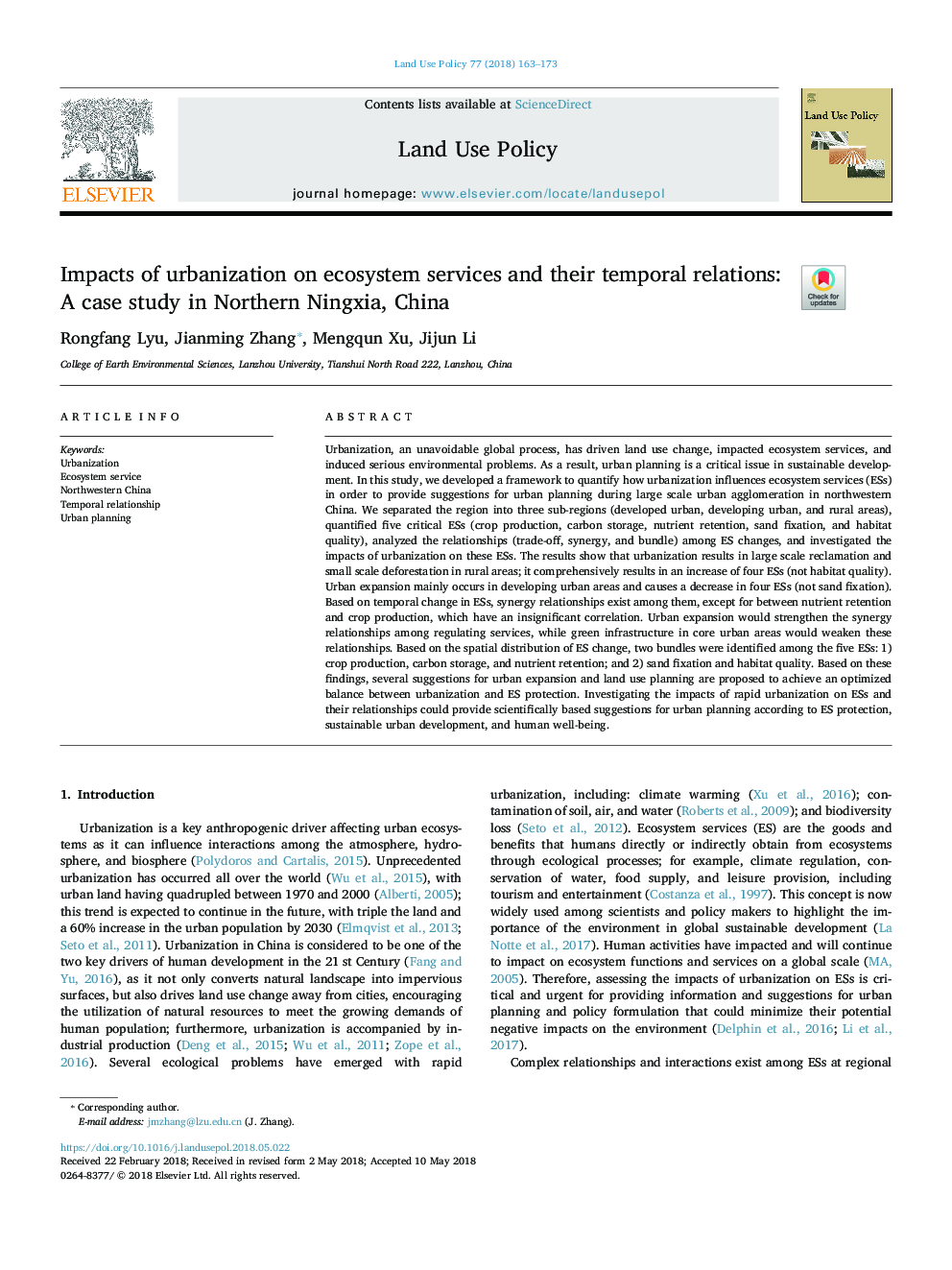| Article ID | Journal | Published Year | Pages | File Type |
|---|---|---|---|---|
| 6546130 | Land Use Policy | 2018 | 11 Pages |
Abstract
Urbanization, an unavoidable global process, has driven land use change, impacted ecosystem services, and induced serious environmental problems. As a result, urban planning is a critical issue in sustainable development. In this study, we developed a framework to quantify how urbanization influences ecosystem services (ESs) in order to provide suggestions for urban planning during large scale urban agglomeration in northwestern China. We separated the region into three sub-regions (developed urban, developing urban, and rural areas), quantified five critical ESs (crop production, carbon storage, nutrient retention, sand fixation, and habitat quality), analyzed the relationships (trade-off, synergy, and bundle) among ES changes, and investigated the impacts of urbanization on these ESs. The results show that urbanization results in large scale reclamation and small scale deforestation in rural areas; it comprehensively results in an increase of four ESs (not habitat quality). Urban expansion mainly occurs in developing urban areas and causes a decrease in four ESs (not sand fixation). Based on temporal change in ESs, synergy relationships exist among them, except for between nutrient retention and crop production, which have an insignificant correlation. Urban expansion would strengthen the synergy relationships among regulating services, while green infrastructure in core urban areas would weaken these relationships. Based on the spatial distribution of ES change, two bundles were identified among the five ESs: 1) crop production, carbon storage, and nutrient retention; and 2) sand fixation and habitat quality. Based on these findings, several suggestions for urban expansion and land use planning are proposed to achieve an optimized balance between urbanization and ES protection. Investigating the impacts of rapid urbanization on ESs and their relationships could provide scientifically based suggestions for urban planning according to ES protection, sustainable urban development, and human well-being.
Related Topics
Life Sciences
Agricultural and Biological Sciences
Forestry
Authors
Rongfang Lyu, Jianming Zhang, Mengqun Xu, Jijun Li,
